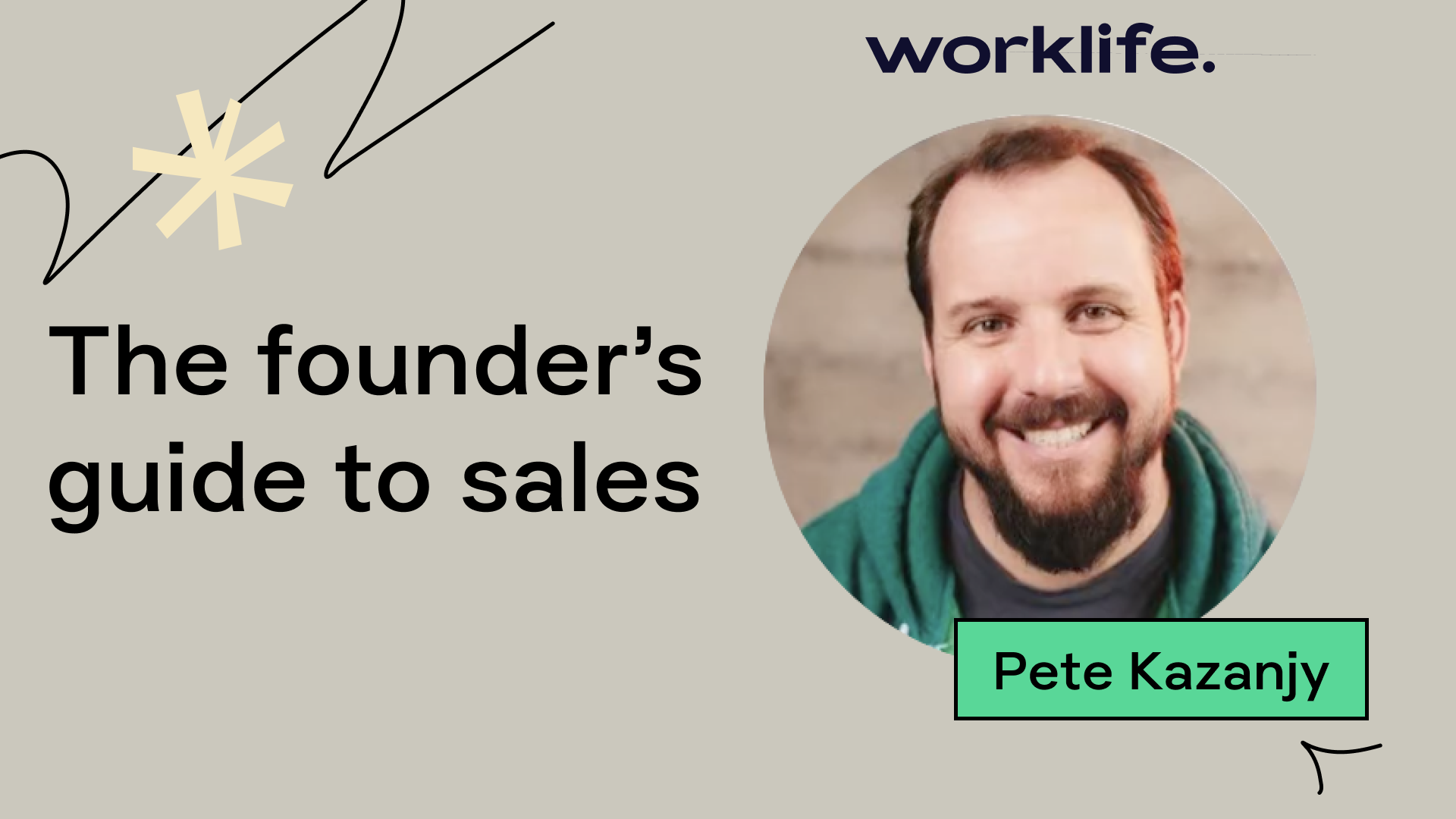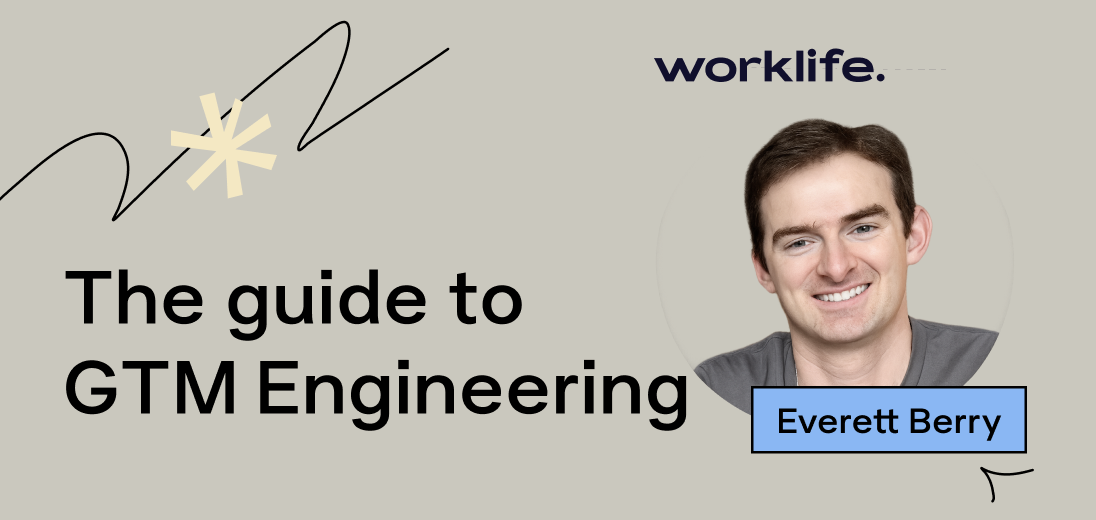As I reflect on the last few years in building and scaling software companies, I’m reminded of the challenges founders face in the whirlwind period from company formation to finding product-market fit.
While there’s no silver bullet to finding product-market fit, I’ve found there is one approach that makes fundraising, building an MVP, and ultimately converting early believers into paying customers a tangible reality in a relatively short amount of time.
Build for the expert, you.
I see a lot of operators who after a few years of building in a specific sector or domain are ready to shift gears and do something entirely different.
Sometimes this shift is caused by a change in your personal risk tolerance such as entering a new life phase that requires a bit more stability, but oftentimes I find operators don’t truly understand the value of their experience and the unique expertise they’ve developed building over the years.
There’s a sense of humility after riding the ups and downs of working at a startup and it’s easy to forget that you are in fact an expert, in both a sector and a domain.
For those that continue to hone their craft, there’s a level of expertise and respect across the ecosystem that makes you a highly sought after employee for first time founders who are new to your domain or as an angel investor that can squeeze into competitive rounds because you bring a lot of value to the cap table.
While operating and angel investing is great and likely the obvious choice as you progress in your career.
The area where I see the most opportunity is leveraging your experience and network to start a company.
I was recently reminded of the tangible advantages that respected operators with deep domain expertise see when they choose to start a company.
1. You have a faster time to market because you’ve spent your entire career in the customer discovery phase.
When it comes to founder-market fit, nothing comes close to a career operator. Your competitive advantage comes from the ups and downs of doing your job over many years. You’ve tried all of the tools on the market, you’ve felt the pain of budget cuts and org changes, and you’ve traded notes with peers at other companies. When you leave to start something, customers don’t feel like they’re getting pitched by a vendor because it’s delightful to reconnect with someone who can empathize and help you while you’re in the trenches.
2. You’re able to independently drive your own sales pipeline with no dependency on warm intros from investors or time wasted navigating complex orgs to find the right buyer.
Cecilia Ziniti, CEO of GC AI, is a great example of a founder with 20 years of legal experience, a three-time general counsel, and thought partner to founders who are working with a GC for the first time.
What sets Cecilia apart is not only does she know every general counsel, she’s developed an extensive curriculum and has worked with over 1,200 general counsels prior to starting her company.
As an operator, there are many ways to build a network over coffees, dinners, and more traditional opportunities. However, for an operator who is thinking about starting something, the ability to educate your peers and become a known expert becomes an invaluable tool for bypassing gatekeepers inside of companies, choosing design partners before launch, and iterating based on quality feedback because your customers are invested in you and your product.
When a company is able to educate customers and arm them with the education and tools to be more successful at work, then the dynamic shifts where you don’t have to aggressively sell software because customers want to work with you. Your company becomes the industry standard and your customers are less likely to leave for a competitor.
3. You’re able to establish credibility quickly and close larger customers sooner than expected because the network you’ve built over the years trusts you and wants to work with you.
Anthony Kenneda, CEO of AudiencePlus, is a familiar face in B2B software.
After building at Box, Gainsight, Front, Hopin, and angel investing in a dozen or so startups, Anthony set out to build AudiencePlus, an entirely new type of tool for marketers to build, engage, and convert an owned audience.
I recently spoke at the first AudiencePlus in-person event and was blown away by the pull from the market. 97% of customers attended either online or in person and 76% of domestic customers flew to NYC to attend in-person. An incredible outcome for an early stage startup that sells to busy, typically hard to reach, Chief Marketing Officers.

As an early stage investor, one of the most feared moments I see for B2B founders is hosting your first webinar, happy hour, or prospect-facing event.
In the case of AudiencePlus, their first event (a full blown conference) was a packed house with standing room only, which speaks to the power of over a decade of relationships and giving back to the startup ecosystem before starting your own company.
4. You’re able to price, package, and sell the product effectively because you understand seasonality, available budget, and bottlenecks to getting a deal done.
When it comes to B2B, there’s nothing harder to sell than HR software.
Not because companies don’t care about their employers or because there isn’t a lot of whitespace for new tools.
In fact, I would argue this is the most important type of business tooling that not only improves the culture of a company, but the health and well-being of your employees and their families.
I find HR/People & Culture tools are started by highly ambitious founders who want to make a change in a very broken system from a benefits perspective and in recent years have set out to improve the overall culture of a company with introduction of remote and hybrid work.
But unless you’re deeply familiar with the space, the red tape and bureaucratic quirks in the industry can easily implode your company.
Over the years, I’ve seen companies go under because their runway wasn’t long enough to make it to the next benefits enrollment period or some sort of strict guideline that makes this entire category of software incredibly hard to build.
5. You’re able to anticipate feature requests and speak with authority with your product and engineering teams, in addition to your customers.
In B2B, I find there are two types of founders: one who builds a product and sets out to find the right buyers and the other chooses the buyer and works closely with them to build the right features.
For the latter, I love Bobby Pinero, CEO of Equals, story.
I had heard Bobby’s name long before starting Worklife, in fact his name came up when I was building at Zendesk and as founders needed help with the most critical functions and most misunderstood and misreported aspects of scaling a startup – Finance, and more specifically ARR reporting.
When Bobby joined Intercom the company had less than $1M ARR and ~20 employees.
He then spent 8 years building Finance, Analytics, Business Operations, and several other functions. When he left Intercom, the company had ~$200M ARR and ~700 employees.
An incredible journey and a unique experience that made Bobby a highly sought after mentor and advisor to startups who needed trusted advice as they scaled.
As Bobby set out to build Equals, the approach to building the product was different from your typical startup. They didn’t start with a Minimum Viable Product, they intentionally designed the company to be a Full Build Startup.
With Bobby’s experience and his deep network of peers in the industry, going to market with a subpar product wasn’t an option.
He and his co-founder Ben McRedmond met at Intercom where Ben started as an engineer and scaled to Senior Director, Growth managing 30 engineers, designers, and product managers. Both knew the features that needed to be built to launch a compelling product and they continue to have ambitious goals because they know first-hand all of the jobs to be done for finance professionals and where incumbent tools fall short.
Fast forward to today, Equals has continued to publish industry-leading education and ship features faster than other B2B companies because the founders are building a tool they wish existed as operators. The product intuition and empathy for customers is deeply personal and the education they provide to the ecosystem is unmatched.
Here are a few guides I share often with founders:
If you’re an expert thinking about starting something I’d love to catch up.
This is an area where I’d love to see talented operators across the startup ecosystem build tools that enable their peers to be better at work.






